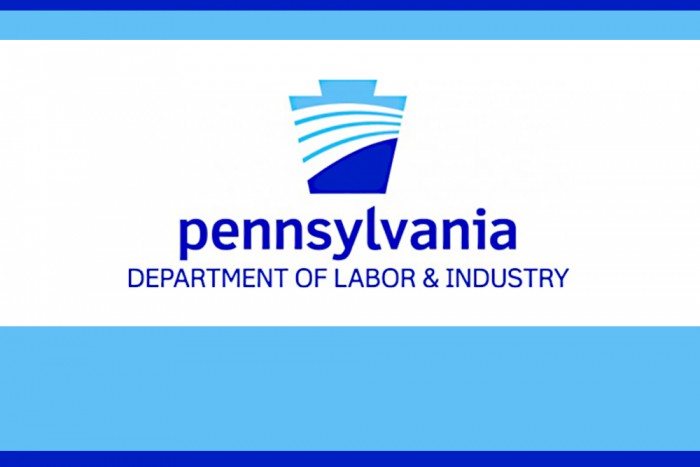HEAL PA Trauma Initiative Info Release
As part of Governor Tom Wolf’s Trauma-Informed PA Plan, in order to guide the Commonwealth and service providers statewide on what it means to be trauma-informed and healing-centered in PA, the Office of Advocacy and Reform (OAR) and the PA Attorney General’s Office have continued its work on trauma initiatives in launching “HEAL PA.” The Office of Advocacy and Reform recently released a new one page flyer for HEAL PA that gives an overview of the mission and vision for Pennsylvania in its efforts to become a trauma-informed state. If you need any additional information or have questions on getting more involved in the HEAL PA initiative, please contact RCPA Policy Director Jim Sharp.
Unemployment Compensation (UC) Fraudulent Claims Update & Guidance
Many employers are reporting receiving Unemployment Compensation (UC) claim notices and other documents about claims that they believe to be fraudulent. Many RCPA members are reporting that an employee still works there and did not file a claim, or that the alleged claimant never worked there. It is important that employers respond to these notices promptly.
Initially, some believed that it was a case that the new system was compromised, but we have learned that this was not the case. Identifying data was stolen in various data breeches we hear about on the news and then sold to criminals (often organized), who use it to file fraudulent unemployment claims.
The new system was presumably targeted simply because it is new, and the criminals want to see if they can get away with the fraud, although we were hearing about increased levels of fraudulent claims in regular UC before the launch. The department tells us that the new system has the regular fraud prevention measures that were present in the old system (so most of these are not being paid), but they are also going to implement identity verification (through ID.me, which they used in the PUA program). No date has been announced on that yet.
Last year, massive numbers of fraudulent claims were filed in the Pandemic Unemployment Assistance (PUA) program in Pennsylvania and across the nation. International and domestic criminals (often organized criminal groups) obtained personal information that was stolen through a data breach (from another source — the data was NOT stolen from L&I). These criminals then used this personal information to file fraudulent unemployment claims.
In addition to attempts at defrauding PUA, there has been an uptick in fraud against regular UC. Although this was happening prior to the rollout of the new system, these attempts seem to have accelerated somewhat under the new system. At a June 23 hearing of the Labor and Industry Committee, the Department of Labor and Industry testified that, while the traditional fraud crosschecks were incorporated in the new system, the identity verification procedures incorporated in PUA have not yet been introduced for UC. They did not provide a specific date, but they hope to implement ID.me verification for UC soon.
We have been offered guidance from the legislative panel who heard the aforementioned testimony from the Department of Labor and Industry. What should you do if an employer contacts your office to report possible Unemployment Compensation (UC) Fraud?
- Respond promptly to any employer notices about a fraudulent claim, clearly stating the situation (current employee did not file a claim, claimant never worked there, etc.) and that the employer believes the claim to be fraudulent. There are directions in the notice about how to respond. Although this can be done by mail, the fastest way to do this is in the employer’s portal in the new UC system. One of the major reasons for the implementation of the new system is improved business processes, and consequently employers can manage all their UC dealings through the new system. For those employers who need to learn the system, there are resources online that may be helpful:
- If a current employee seems to be the victim of identity theft, the employer or employee should fill out an online fraud report through UC’s website. There are several types of fraud, so they should take care to report identity theft fraud, and they should include as much information as possible. The link to UC’s fraud information page is here.
- Finally, since the employee is likely the victim of identity theft, the employer may want to share some additional information and identity theft resources with the employee. If the legislator’s office does not stock caucus identity theft publications, the FTC’s identity theft website contains information about what steps the victim should take to recover and protect their identity.
RCPA continues to monitor these activities through our government affairs director and the RCPA Human Resources Committee. Please contact your RCPA Policy Director if you have any further questions.
RCPA Responds to PA Department of Human Services Spending Plan for the American Rescue Plan Act of 2021
RCPA submitted comments regarding the PA Department of Human Services spending plan for funding available to home and community-based services (HCBS) through the American Rescue Plan Act of 2021, Section 9817 that was due today, July 6, 2021. The document details several overall, cross-system comments for review in addition to specific comments from each RCPA Division; Adult Mental Health, Children’s Services, Intellectual and Developmental Disabilities (including Supports Coordination), Drug and Alcohol, Physical Disabilities and Aging (including Brain Injury services) and Pediatric Rehabilitation.
RCPA appreciates the opportunity to provide this feedback on the DHS ARP plan. We look forward to further discussion and stand ready to assist DHS as a key community stakeholder.
A Stable Connection Should Mean More Than Just A Strong Wi-Fi Signal — Free Webinar July 13, 2021
Pennsylvania Overtime Rule Repealed in 2021–22 State Budget
As we reported in Monday’s Budget Overview Alert, the PA General Assembly and the Governor came to an agreement to repeal the Governor’s PA Overtime Rule. As you may recall, RCPA was part of a wide-ranging coalition headed up by the PA Chamber of Commerce and Industry. The Coalition sought to halt the enactment of this onerous rule. The PA Overtime Rule became effective on January 1, 2021, and implementation would have begun in October.
Prior to its repeal, health and human service providers for the past six-months and during the height of the COVID-19 pandemic had to plan to comply with both the Federal and PA Overtime Rules. Under the PA Overtime Rule, RCPA members had to plan for:
- Raising their employee’s salary threshold on October 3, 2021. In October 2021, salaried workers earning $40,560/yr, or about $780/week, would have needed to receive a salary increase to at least this amount or be classified as non-exempt;
- There would have been another increase on October 3, 2022. In October 2022, the employee salary threshold would have been raised to $45,500/yr, or about $875/week;
- Plan for another automatic increase in October 2023 and every three years thereafter (i.e. after 2023, the next increase will occur in 2026); and
- The employer would still have to show the employee still met both the salary test and the duties test to qualify as exempt.
If you recall, the Federal Department of Labor published its final rule on Friday, September 27, 2019. The Federal rule:
- Raised the salary threshold from the current $23,660 ($455/week) to $35,568 ($684/week);
- Became effective 1-1-2020;
- Did not automatically update or change the duties test; and
- Allowed nondiscretionary bonuses, incentive payments, and commissions to satisfy up to 10 percent of the salary requirement.
RCPA applauds the General Assembly and the Governor for repealing this duplicative and unnecessary rule.
If you have any questions, please contact Jack Phillips, Director of Government Affairs.
OCYF Bulletin Update Appendix A

OCYF Bulletin Update Appendix A: Title IV-E Prevention Program & Family First Act
The Office of Children, Youth and Families (OCYF) has released Bulletin 3130-21-03, entitled “Policies and Procedures for Implementation of the Title IV-E Prevention Program under the Family First Prevention Services Act.” Please see Appendix A, which is the only change to the bulletin.
This bulletin provides information and guidance on new prevention services requirements for serving children and families as a result of the Family First Prevention Services Act (Public Law (P.L.) 115-123) (Family First). Specifically, these new requirements must be implemented as part of Pennsylvania’s election to participate in the federal Title IV-E Prevention Program established under Family First. Participating in this program provides Pennsylvania the opportunity to strengthen efforts to prevent out-of-home placement of children by expanding the use of evidence-based services and programs to better support families in their own homes and communities.
The requirements outlined within this bulletin are effective October 1, 2021. Questions regarding this bulletin or requirements may be directed to RCPA Children’s Director Jim Sharp as well as your applicable OCYF Regional Office.
OMHSAS Releases May 11 IBHS Webinar Info & Updated FAQ
OMHSAS hosted a statewide Intensive Behavioral Health Services (IBHS) webinar on May 11, from 1:00 pm – 3:00 pm. The webinar included helpful tips and reminders regarding fee for service prior authorization instructions, licensing and regulatory requirements, and department approved IBHS training.
- IBHS Updates Webinar Presentation
- IBHS Updates Webinar Recording (opens in a new window)
- IBHS Updates Webinar Questions & Answers Document
OMHSAS also reposted the IBHS FAQ back on the website. As you review the documents, please contact RCPA Children’s Director Jim Sharp with any thoughts, questions, or feedback.
Advocates Address Obstacles in PA’s Child Welfare System
PRF Reporting Portal is Now Open
Today, we received the below email from the Health Resources & Services Administration (HRSA) concerning the Provider Relief Fund.
Dear Stakeholder,
The Provider Relief Fund (PRF) Reporting Portal is now open for providers who need to report on the use of funds in Reporting Period 1. HRSA is committed to supporting the providers who have received PRF payments in completing their reporting requirements successfully. We communicated with providers this morning and we want to share that message with you.
To aid stakeholders as they support their networks, we have created two resources that contain easy-to-share information like a general email, newsletter, and social media content:
- Stakeholder One-Pager (PDF)
- Stakeholder Toolkit (PDF)
In addition, there are resources specifically for providers:
- Portal User Guide
- Data Entry Workbook
- Frequently Asked Questions
Provider Support Line at (866) 569-3522 for TTY dial 711. Hours of operation are 8:00 am to 10:00 pm CT, Monday–Friday.
HRSA will host a recorded webcast on July 8, 2021 at 3:00 pm ET to provide technical assistance on reporting requirements for PRF recipients and interested stakeholders. Interested parties can register to attend here. We hope you can join us and help spread the word.
We will be in touch as additional resources are developed in the future. Thank you for all you are doing to help your communities throughout this COVID-19 pandemic.
Thank you,
The Office of Provider Support

















